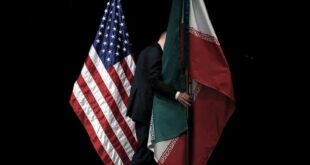 TEHRAN (FNA)- A senior Iranian defense official said Wednesday that the country is producing a new generation of Saeqeh (Thunderbolt) jet fighters.
TEHRAN (FNA)- A senior Iranian defense official said Wednesday that the country is producing a new generation of Saeqeh (Thunderbolt) jet fighters.
Majid Hedayat, the General Manager of Iran’s Aviation Industry Organization in the Defense Ministry, made the disclose in a speech on the sidelines of Kish Aviation Industry Exhibition in the country.
“The new generation of Saeqeh fighters enjoys more facilities and capabilities and also is domestically constructed,” Hedayat said.
“Other new military planes have also been constructed which will be employed for the naval patrolling purposes,” he added.
In September last year, Iranian Air Force successfully tested the first generation of locally-built Saeqeh fighter which was adapted from reversed-engineered, modified (twin-tail) American F-5 platforms.
Aiming at enhancing the defense capabilities, the country’s Armed Forces on Monday inaugurated a new naval base in the strategic port of Jask, east of the Strait of Hormuz in southern Iran.
The United States and its allies have accused Iran of trying to develop nuclear weapons under the cover of a civilian nuclear program, consistently refusing to rule out a possibility of military strikes against Iran.
Iran has denied the US charges and insisted that its nuclear program is for peaceful purposes only.
A US attack on the Syrian village of Sukkariyah on Monday, has raised speculation about the likelihood of a unilateral strike on the Islamic Republic.
Israel and its close ally the United States accuse Iran of seeking a nuclear weapon, while they have never presented any corroborative document to substantiate their allegations. Both Washington and Tel Aviv possess advanced weapons of mass destruction, including nuclear warheads.
Iran vehemently denies the charges, insisting that its nuclear program is for peaceful purposes only. Tehran stresses that the country has always pursued a civilian path to provide power to the growing number of Iranian population, whose fossil fuel would eventually run dry.
Speculation that Israel could bomb Iran first mounted after a big Israeli air drill in June. In the first week of June, 100 Israeli F-16 and F-15 fighters reportedly took part in an exercise over the eastern Mediterranean and Greece, which was interpreted as a dress rehearsal for a possible attack on Iran’s nuclear installations.
Iran has, in return, warned that it would target Israel and its worldwide interests in case it comes under attack by the Tel Aviv.
The United States has also always stressed that military action is a main option for the White House to deter Iran’s progress in the field of nuclear technology.
Iran has warned it could close the strategic Strait of Hormoz if it became the target of a military attack over its nuclear program.
Strait of Hormoz, the entrance to the strategic Persian Gulf waterway, is a major oil shipping route.
In a Sep. 11 report, the Washington Institute for the Near East Policy says that in the two decades since the Iran-Iraq War, the Islamic Republic has excelled in naval capabilities and is able to wage unique asymmetric warfare against larger naval forces.
According to the report, the Islamic Revolutionary Guards Corps Navy (IRGCN) has been transformed into a highly motivated, well-equipped, and well-financed force and is effectively in control of the world’s oil lifeline, the Strait of Hormuz.
The study says that if Washington takes military action against the Islamic Republic, the scale of Iran’s response would likely be proportional to the scale of the damage inflicted on Iranian assets.
Intensified threats by Tel Aviv and Washington of military action against Iran contradict a recent report by 16 US intelligence bodies which endorsed the civilian nature of Iran’s nuclear plans and activities.
Following the US National Intelligence Estimate (NIE) and similar reports by the IAEA head – one in November and the other one in February – which praised Iran’s truthfulness about key aspects of its past nuclear activities and announced settlement of outstanding issues with Tehran, any effort to impose further sanctions or launch military attack on Iran seems to be completely irrational.
The February report by the UN nuclear watchdog, the International Atomic Energy Agency, praised Iran’s cooperation in clearing up all of the past questions over its nuclear program, vindicating Iran’s nuclear program and leaving no justification for any new UN sanctions.
The UN nuclear watchdog has also carried out at least 14 surprise inspections of Iran’s nuclear sites so far, but found nothing to support West’s allegations.
Following the said reports by the US and international bodies, many world states have called the UN Security Council pressure against Tehran unjustified, demanding that Iran’s case be normalized and returned from the UNSC to the IAEA.
Meantime, a recent study by the Institute for Science and International Security (ISIS), a prestigious American think tank, has found that a military strike on Iran’s nuclear facilities “is unlikely” to delay the country’s program.
 Eurasia Press & News
Eurasia Press & News

